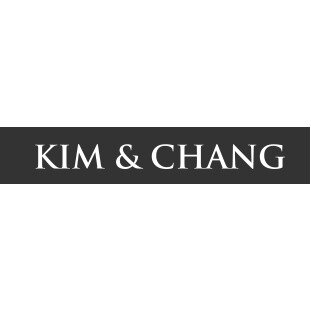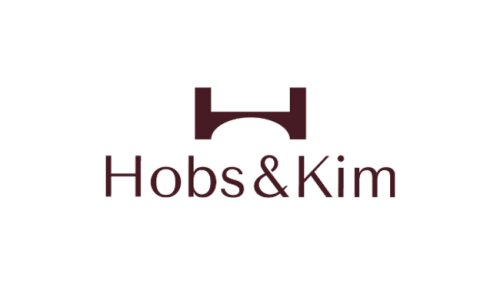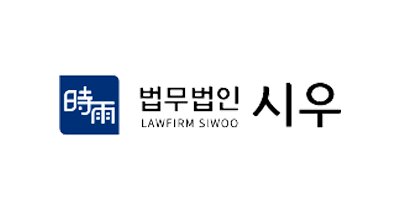Best Business Registration Lawyers in South Korea
Share your needs with us, get contacted by law firms.
Free. Takes 2 min.
Or refine your search by selecting a city:
List of the best lawyers in South Korea
About Business Registration Law in South Korea
Business Registration in South Korea is a crucial step for entrepreneurs looking to establish their business legally within the country. It involves registering the business with the Commercial Registry Office, which formalizes the business entity as a legal person in the eyes of the law. The process ensures that businesses comply with South Korean regulations, including taxation and labor laws, and grants them the ability to conduct commercial activities legally. The ease of doing business in South Korea, known for its innovative economy, makes this an attractive option for both domestic and international entrepreneurs.
Why You May Need a Lawyer
Engaging a lawyer for Business Registration in South Korea can be beneficial for several reasons. Legal professionals can provide assistance in complex matters such as:
- Navigating language barriers and understanding legal terminology.
- Ensuring complete compliance with local laws and regulations.
- Drafting necessary documentation such as articles of incorporation.
- Advising on the most appropriate business structure for tax and liability purposes.
- Expediting the registration process through experienced knowledge of local bureaucratic processes.
- Ensuring ongoing compliance with regulatory changes after initial registration.
While it is possible to register a business without legal help, complexities in the registration process often necessitate the expertise of a lawyer to ensure legality and efficiency.
Local Laws Overview
Several key aspects of local laws are particularly relevant to Business Registration in South Korea:
- Business Types: Understanding different business types, such as limited liability companies, partnerships, and sole proprietorships, is crucial for choosing the right structure.
- Foreign Investment Promotion Act (FIPA): For foreign businesses, compliance with FIPA is necessary to facilitate foreign investments, and understanding incentives and restrictions is vital.
- Regulatory Bodies: The Ministry of Trade, Industry, and Energy is one of the main bodies governing business registration, along with regional Commercial Registry Offices.
- Taxation: Registration with the National Tax Service is a key step, ensuring the business complies with corporate tax responsibilities.
- Intellectual Property: Protecting business ideas and products through proper intellectual property registration is advisable.
Frequently Asked Questions
How long does it take to register a business in South Korea?
The registration process can typically take from 1 to 7 days, depending on the type of business and completeness of documentation.
What types of business entities can I register?
Common types include private limited companies, joint-stock companies, and branch offices for foreign companies.
Do I need a resident to register a business in South Korea?
No, but having a local address for the business office and a representative is crucial for registration.
What documents are required for business registration?
Documents often required include the business name registration, articles of incorporation, and identification of directors and representatives.
What are the costs associated with business registration?
Costs vary depending on the type of business but typically include stamp duties, registration fees, and advisor fees if using professional services.
Is it necessary to have a corporate seal?
Yes, a corporate seal is often necessary for official documents and contracts.
How can foreign companies register for business in South Korea?
Foreign companies need to comply with the Foreign Investment Promotion Act and register as a branch office or establish a subsidiary.
Are there any industries restricted for foreign investors?
Yes, some industries like telecommunications and defense may have restrictions on foreign ownership.
What is the significance of a Korean business license?
A business license is essential for legally conducting business operations, and certain industries require special licenses.
Do I need a separate registration for taxes?
Yes, businesses must register with the National Tax Service to comply with corporate and value-added tax regulations.
Additional Resources
Several resources and organizations can assist with Business Registration in South Korea:
- Ministry of Trade, Industry, and Energy (MOTIE): Official site for trade and industry regulations.
- National Tax Service (NTS): Handles tax registration and corporate tax matters.
- Korea Trade-Investment Promotion Agency (KOTRA): Supports foreign investors and businesses planning to expand in Korea.
- Small and Medium Business Administration (SMBA): Provides support for small and medium enterprises.
- Professional Legal Firms: Specialize in business registration and compliance.
Next Steps
If you need legal assistance in Business Registration, consider the following steps:
- Conduct preliminary research to understand the business environment in South Korea.
- Consult with a professional legal firm specializing in South Korean business law to explore your options for registration.
- Gather all necessary documents for registration in advance to expedite the process.
- Consider visiting relevant governmental agencies or their websites to gather detailed legal requirements.
- Assess the need for any additional licenses or registrations specific to your industry.
Lawzana helps you find the best lawyers and law firms in South Korea through a curated and pre-screened list of qualified legal professionals. Our platform offers rankings and detailed profiles of attorneys and law firms, allowing you to compare based on practice areas, including Business Registration, experience, and client feedback.
Each profile includes a description of the firm's areas of practice, client reviews, team members and partners, year of establishment, spoken languages, office locations, contact information, social media presence, and any published articles or resources. Most firms on our platform speak English and are experienced in both local and international legal matters.
Get a quote from top-rated law firms in South Korea — quickly, securely, and without unnecessary hassle.
Disclaimer:
The information provided on this page is for general informational purposes only and does not constitute legal advice. While we strive to ensure the accuracy and relevance of the content, legal information may change over time, and interpretations of the law can vary. You should always consult with a qualified legal professional for advice specific to your situation.
We disclaim all liability for actions taken or not taken based on the content of this page. If you believe any information is incorrect or outdated, please contact us, and we will review and update it where appropriate.
Browse business registration law firms by city in South Korea
Refine your search by selecting a city.
















